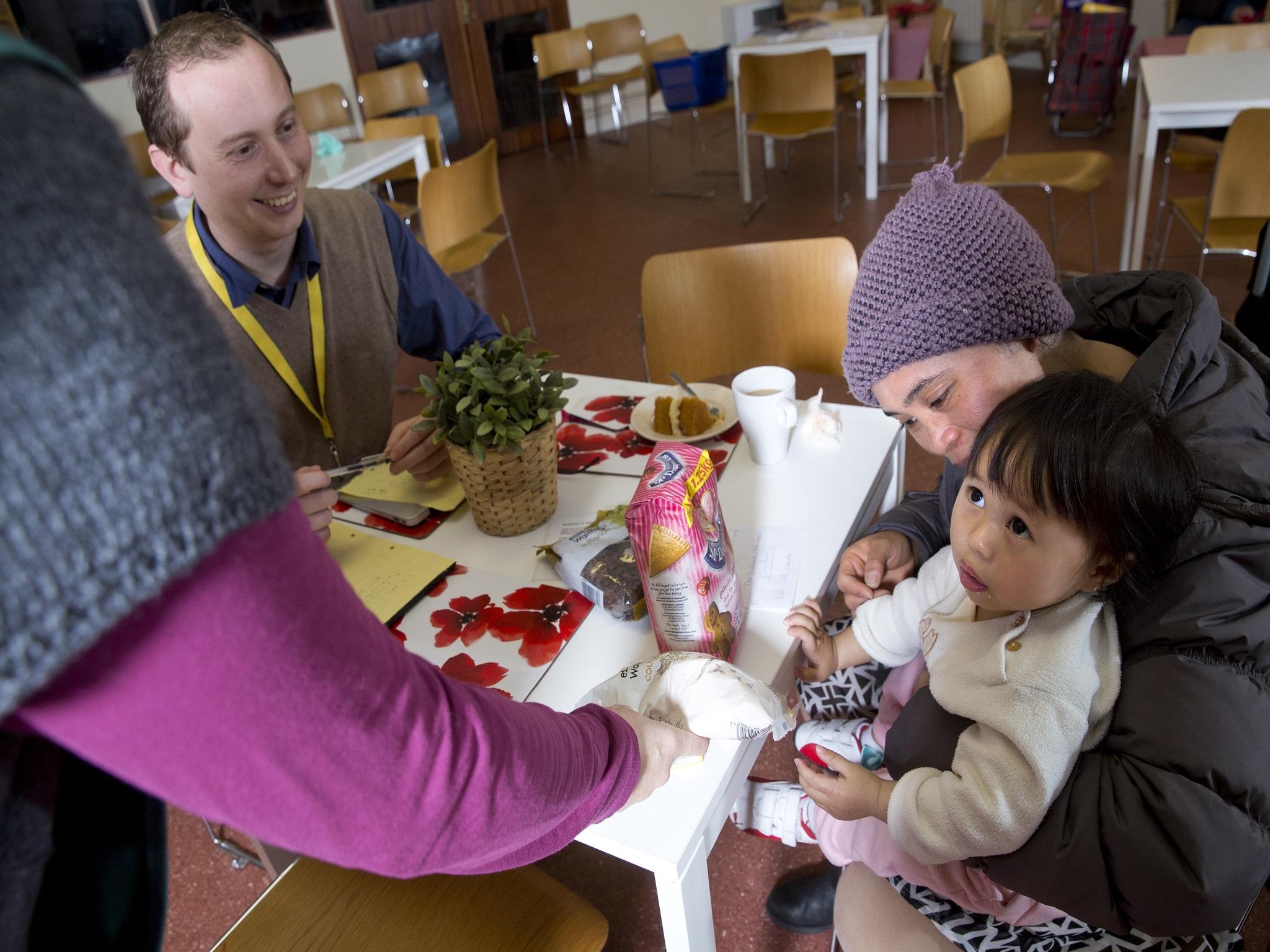Half of children using food bank supplies are primary school age, warns Trussell Trust
Emergency food supplies given to children up six per cent in a year, latest figures show

Half of children receiving supplies from food banks are aged between five and 11, new research has revealed.
The Trussell Trust, which runs more than 420 food banks, said its study showed how close to crisis many families are living.
There were over 67,500 three-day emergency food supplies given to children in July and August in 2016, 4,000 more than the previous year, it was found.
Half went to five to 11-year-olds, just over a quarter to under four-year-olds and a fifth to 12 to 16-year-olds, said the Trust.
It added that the percentage of primary school children helped by food banks was consistently high all year, with 46 per cent of all children referred in the year to March being aged between five and 11.
The charity said it will offer extra help to families this summer, with additional services including a holiday club.
Trained volunteers will talk to parents over why they are struggling and to offer support.
Samantha Stapley, operations manager for England at the Trussell Trust, said: “Over a third of all the food distributed by food banks in our network consistently goes to children, but these new figures show five to 11 year-olds are more likely than other children to receive a food bank's help.
“This highlights just how close to crisis many families are living. We can all make a difference - checking which food your local food bank is running low on and donating to make sure emergency food is available when people are referred to help is a simple and effective way to get involved.
“As a nation, we also must address the reasons why families with children are referred to food banks in the first place.
“We welcome the Government's decision to maintain free school lunches for children during term time - the next step must be to help families during the holidays.
“Food banks are doing more than ever before but voluntary organisations alone cannot stop primary school children facing hunger.
“We are keen to share our insights with the new Government alongside other charities to inform a long-term coordinated solution to stop families falling into crisis.”
The Rt Rev the Lord Bishop of Truro Tim Thornton said the figures were “shocking”, adding: “That so many primary age children are going without food in our country is of great concern.
“It is good that so many voluntary organisations, the vast majority of which are based on churches, are working to provide help for families during the summer holidays, said the Bishop who chairs the Children's Society.
“It is very good that the community wants to help and work with those less fortunate and that is a key part of the gospel values.
“It is, however, also important that we keep trying to understand the deeper reasons why this situation is as it is.”
Join our commenting forum
Join thought-provoking conversations, follow other Independent readers and see their replies
Comments
Bookmark popover
Removed from bookmarks